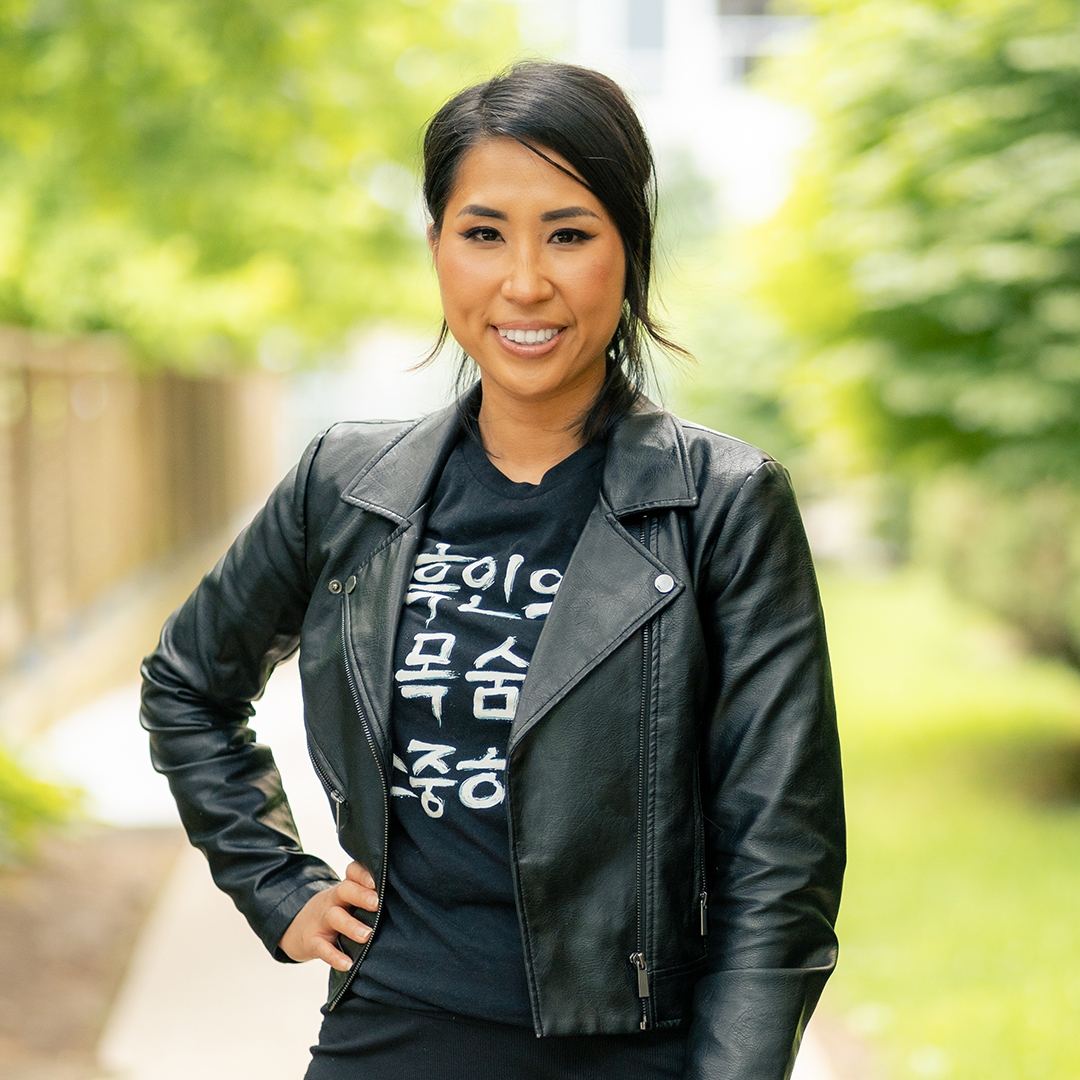By Esther Saehyun Lee, Community-Centric Fundraising Global Council Member, Former Industry Folk, and Scorpio
Working as a server gave me a degree in studying power, wealth, and social hierarchy… Working in fine dining is a microcosm of wealth culture; wealth culture is a microcosm of power and privilege.
When I walk around my alum university, hospital wings, museum halls, opera walls, and sometimes even parks, I can always recognize the names. I will sometimes remember their kids’ names, grandkids, regular vacation spots, and stories of success. I even know how they like their martinis.
You see, before I was a fundraiser, I was a server.
For most of my working life, I was able to live independently by working in restaurants and bars. My last job before I entered the sector full-time was as a manager and server at one of Toronto’s most prestigious and well-known fine-dining restaurants.
It wasn’t uncommon to have celebrities of all calibers drop in for a meal or a drink. We were also on regular rotation as a lunch spot for Toronto’s most wealthy and powerful. From movie stars to politicians, millionaires to billionaires, this was my norm for five years.
I worked as a server through grad school, as my supposedly “full-ride scholarship” barely covered my tuition. After I graduated, I continued serving to pay off my massive loan.
I thought I was staying in serving to fund my education, but I’ve come to realize that serving itself was an incredible education in its own right.
Lessons from fine dining: Power dynamics, wealth culture, and social hierarchies
Being a server while pursuing a graduate degree was an interesting time. The amount of respect the rich and powerful clientele allotted to me oscillated. They’d hear I was a server and make sweeping assumptions about my intellect and education. Then they’d hear that I was a graduate student at a top university and have to unpack their classist assumptions. Introducing myself as a server always gave me the opportunity to do a quick study of someone’s values, character, and respectability narratives.
Working as a server gave me a degree in studying power, wealth, and social hierarchy. It’s an education that has been immensely helpful as I transitioned into fundraising by equipping me with a critical eye for the nonprofit sector. Working in fine dining is a microcosm of wealth culture; wealth culture is a microcosm of power and privilege.
To those who have never been in hospitality or fine dining, let me explain: You’re making a little above minimum wage while you serve people $400 bottles of wine that they casually order for a work lunch.
I’ve listened to people earnestly share, “All I really want in the next few years is a private jet. Wouldn’t that just make life so much easier?” To which I’d respond, “Oh yes! That would save a lot of time and effort,” as I mentally calculated how much of that day’s shift could go into my massive student loan debt and how much that would leave me for groceries and rent.
Fine dining serving is watching businessmen come in and order endless amounts of wine and food and seeing a bill that equals two months of my rent—for a Wednesday lunch. It’s watching them play “credit card roulette,” each throwing down a credit card and having me decide one randomly to see who pays.
Both fundraising and fine dining are worlds saturated with power.
Residing in both worlds and dealing with powerful people while wielding so little power myself has equipped me with the vision and insight to study it. It gives me an interesting POV. From my analysis, the difference between fundraising and fine dining is fine dining is much more honest about the transaction at play.
Parallels between fine dining and fundraising
Working in a fine dining restaurant, I saw moguls across all industries at their most casual. Celebrating birthdays, observing funerals, and brokering business deals worth millions discussed over a bowl of pasta. I watched net worths rise and fall all in one meal.
This took some time for me to get used to.
I immigrated to Canada with my family when I was four. Much of my childhood was spent in precarious living, rife with food insecurity and poverty. Pretending that this mass amount of wealth spent on food and wine so casually was a part of the job was most challenging to get used to.
As restaurant industry folks know and say, 49% of the job is technical, and 51% of the job is emotional labor. Coming to this job as an immigrant grad student with $55k in debt, the emotional was the more difficult labor. But I got used to it. I got used to putting on my uniform, entering the restaurant, and locating myself within the matrix of power and privilege.
To be a true professional server, you’re invisible until you’re needed. Waters are filled, wine is poured, food is served hot, and cutlery and napkins appear. You’re part ornamental, part operational. You’re as friendly as the table wants you to be. You’re as visible as the table wants you to be. People are comfortable talking shop because they consider you a part of the background. They’re comfortable acting like themselves because servers, for the most part, are considered invisible.
And this position gave me insight into how power operates in the 1%.
Watching people wield their power and privilege like weapons was fascinating. It gave me an understanding of how a person navigates it when they don’t question their status or belonging in the world. It also gave me a sense of how power operates in spaces I had never been privy to. It gave me insight into wealth culture in an unadulterated way.
The power dynamic between us–the service staff and the client or diner–was always named and acknowledged. It’s not an easy job; it’s definitely not an easy industry. It’s not one that people generally understand as respectable. But it’s an honest job as the transaction of power and privilege is made clear—usually with cash.
Power dynamics implicit in fundraising are explicit in fine dining
The work we do is not solely about generosity and community care. Our work as fundraisers will inevitably put us in direct contact with wealth, power, and privilege. The earlier we understand this, the more effective we will be in fundraising in a principled way.
When I left serving, I was excited to exit this dynamic of power and cash. I was excited to be in a sector where this dynamic was less visible, where I wouldn’t be paid to smile. But much to my surprise, when I entered the nonprofit sector, I found it surprisingly similar to fine dining.
Wealthy, influential people’s wealth culture is marked by the ease with which people talk about money. Navigating it is pretending that $100,000 isn’t a big deal, even when you only make half that in a year. It’s walking into someone’s home, understanding that the foundation they oversee or fund is a tax vehicle for their wealth, and tailoring a proposal to get a segment of it for your organization, mission, and, if we’re honest, secure your livelihood.
It’s strange to me that we don’t talk about this more in nonprofits.
I have had a great formal education in the field of fundraising, but it lacked a serious discussion about the power differential omnipresent in our field. I never had a class that really dissected how power is distributed with money or how power is distributed in organizational hierarchies. Nothing teaches you about concentrated wealth and power quite like serving.
It’s an interesting dichotomy for us fundraisers to be in a sector renowned for wage theft and underemployment, talking to people about generosity, legacy, and wealth. Major gifts officers are paid barely above a living wage but are expected to hold a portfolio for millions.
The power dynamic within fundraising is less explicit than in fine dining. We don’t like to analyze the power dynamic or address it. It’s awkward to do so. Under the halo effect of “doing good” and “advancing the mission,” we obfuscate the level of power and privilege we have to navigate to feel secure in our jobs and hit our fiscal revenue goals.
To pursue the work of philanthropy, we have to study the ways power and privilege operate.
So, let’s be honest about that.
The work we do is not solely about generosity and community care. Our work as fundraisers will inevitably put us in direct contact with wealth, power, and privilege. The earlier we understand this, the more effective we will be in fundraising in a principled way.
We may have joined this sector to serve our community; we have the skills, commitment, and values to envision a better world. But the philanthropy sector, as it is, requires more than that. It requires an unflinching eye to the concentration of unprincipled power and wealth that circulates within it.
Although I have studied fundraising in an institutional setting and continue to learn so much from my mentors and working with brilliant fundraisers, studying their approach, I also have to credit my time in fine dining. It has equipped me with invaluable insights into the dynamics of power and privilege that permeate both the worlds of fine dining and the nonprofit sector.
I left the hospitality sector the day that my city closed all restaurants due to COVID-19 lockdowns. The day they closed the restaurants was the day I made my final payment to my student loan. I had a lot of emotions that day. While I, with the rest of the world, descended into fear and anxiety about the pandemic, I quietly exited this chapter of my life. I thought, “I’m grateful that I was able to fund my education through this job.”
But now I think to myself, “I’m grateful for what fine dining taught me. This was an education I could have never paid for.”

Esther Saehyun Lee
Esther Saehyun Lee, MA, (she/her) is a Community-Centric fundraiser and Consultant at Elevate Philanthropy Consulting. She is a fundraiser, storyteller, and advocate who works to mobilize resources to communities. In her work and volunteer positions, she challenges and dismantles systems of power in the nonprofit sector to ground its practices towards equity and justice. She’s helped many nonprofits increase their revenue, implement fundraising processes and structures in a CCF lens, and has demonstrated increase in both revenue and donor base.
She is dedicated to advancing the mission of justice in the nonprofit sector and does so in her roles as a Community-Centric Fundraising (CCF) Global Council member and Interim Board Member of Association of Fundraising Professionals Greater Toronto Chapter. She is a movement builder dedicated to making space for people of colour within the nonprofit sector. In addition to these titles, she is an amateur banjo player and cat mom. If you’d like to chat about equity in nonprofit, grab a virtual coffee, or just exchange memes, find her on LinkedIn. If you’d like to work with Esther, book a meeting with her.
Discover more from CCF
Subscribe to get the latest posts sent to your email.

